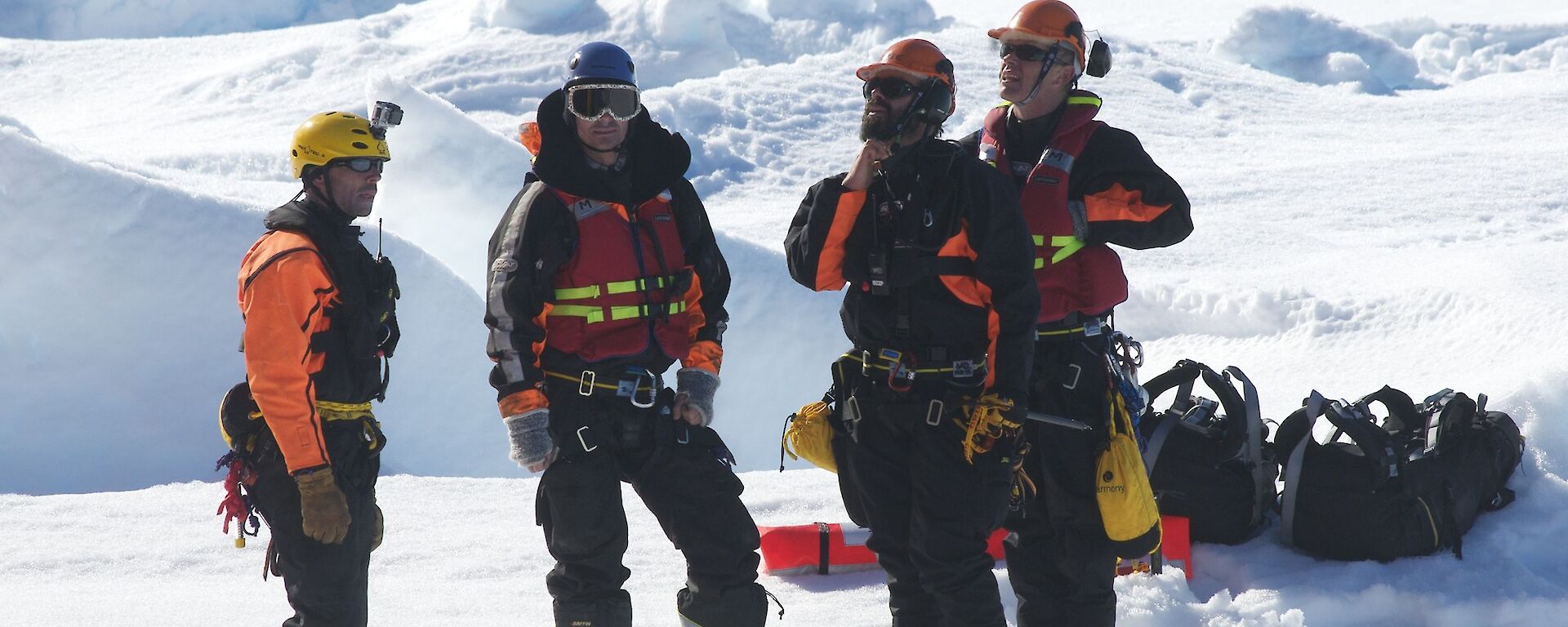Dr James Doube is an Antarctic Medical Practitioner. Dr Doube commenced his service with the Australian Antarctic Division (AAD) as a rural and remote medicine registrar. He completed his Fellowship of the Australian College of Rural and Remote Medicine with advanced skills in General Practice Surgery, while providing outstanding service to Australia’s Antarctic Program.
Dr Doube is a multi-skilled expeditioner. He has experience and skill in pre-hospital medicine, having qualified as an intensive care paramedic before undertaking medical training. He has enthusiastically embraced all aspects of ship and station life. His involvement encompasses medical facility management, biology, science, communications, media, search and rescue and field logistics support, including resupply activities. He has contributed individually and as a team member to each voyage and expedition he has been involved in. He contributes substantially to these efforts, ensuring their success.
Dr Doube has been described as “an inspiration to other doctors in practicing remote medicine”. During his time with the AAD he has demonstrated his outstanding qualities in the practice and theory of polar medicine. He is skilled across the disciplines of procedural generalist medicine, expedition medicine, public health and occupational medicine. This is supported by his high regard in the fields of biology, veterinary and boating skills. Combined with his willingness, enthusiasm and versatility, this exceptional combination of abilities and skills has contributed to the success of various expeditions and programs.
Dr Doube has made a multi skilled contribution to successive Macquarie Island expeditions. During the expeditions he has undertaken additional roles. These include Field Training Officer, leading the Search and Rescue Teams and held a key role in small boat operations. Small boat operation roles requires enhanced ability given the Macquarie Island environment. He has participated in seal and shark biology research, where his qualifications in biology proved particularly valuable. He has also assisted as a licensed operator of loaders, skidders, cranes and a telescopic low loader.
Dr Doube has made a significant contribution to the Macquarie Island Pest Eradication Program (MIPEP). This contribution has been acknowledged as outstanding by the Tasmanian Parks and Wildlife Service. Dr Doube's input far exceeded what would have been expected of the Medical Officer. Dr Doube has had a significant role in the success of the program from the outset specifically with:
- Strategy and planning of the MIPEP. Dr Doub undertook, on his own initiative, a census of rabbit populations using night vision glasses. By this he was able to quantify the problem, which was far greater than previously thought.
- Input to operational strategy and management of the station. An unprecedented mix of personnel and higher wintering numbers involved in the MIPEP made this highly valuable.
- Planning for the wellbeing of isolated and remote field operatives. Spcifficaly, Dr Doube planned for emergency response to accidents in the challenging Macquarie Island environment.
Dr Doube displayed exceptional service in volunteering for “back to back” wintering service during 2010 and 2011. It is rare for service to be for such an extended time. Dr Doube sustained exceptional service at a superior level across many aspects of an annual program. The demands of these two years were well above the normal pressures on an Antarctic Medical Practitioner.


